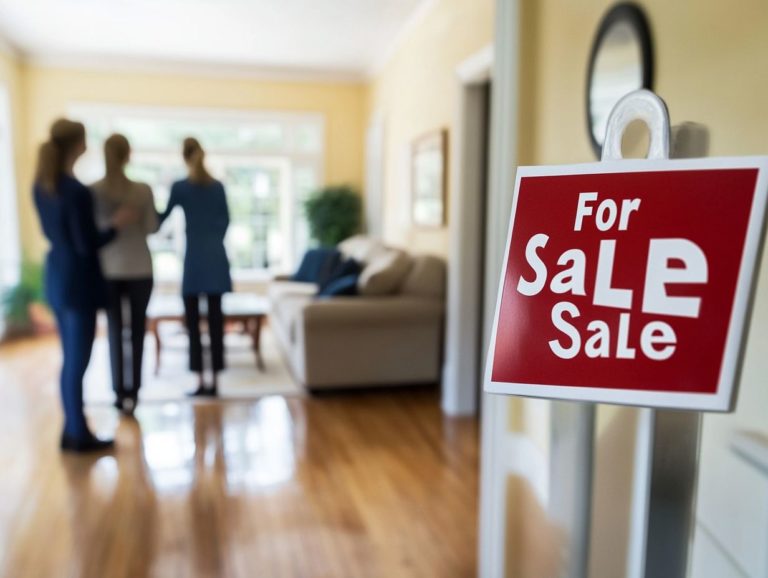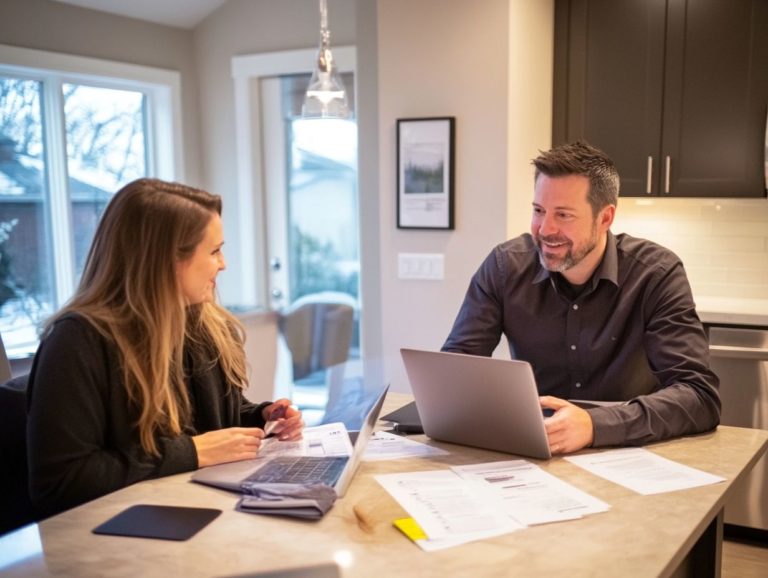How to Effectively Communicate with Your Agent
Navigating the realm of agents can transform your journey, whether you re an artist, athlete, or entrepreneur.
Understanding your agent’s role is crucial for unlocking your full potential. This article also outlines strategies for cultivating a strong relationship with your agent through effective communication, setting clear expectations, and managing conflicts with grace.
Immerse yourself in this exploration to harness the advantages of your agent partnership!
Contents
Key Takeaways:

Understanding your agent’s role is key for effective communication. They are there to help you achieve your goals.
Build a strong relationship with your agent through clear communication and mutual trust.
Effective strategies include active listening and setting realistic expectations.
To avoid conflicts, set clear expectations and define goals from the beginning.
Be open to feedback and compromise to maintain a positive working relationship.
Understanding the Role of an Agent
Knowing what an agent does helps you communicate better.
Agents connect your needs with various projects, whether in real estate or marketing.
They ensure transparency about availability and uphold the agreed-upon standards for service.
An agent handles technical aspects and manages relationships with finesse. This builds trust and collaboration, leading to strong professional connections, especially when following tips for a successful home search with your agent.
What Agents Do and How They Help
Agents bridge communication between you and various stakeholders, ensuring everyone understands project objectives.
By utilizing effective project management techniques, they streamline workflows and enhance trust and collaboration.
These professionals excel at relationship-building, employing active listening and timely follow-ups to pinpoint your needs.
Prioritizing effective communication allows agents to navigate potential conflicts and address issues promptly, making it easier to review your agent’s performance overall.
Their commitment to maintaining an open dialogue significantly contributes to your overall satisfaction as they strive to exceed your expectations.
Building a Strong Relationship with Your Agent

Building a strong relationship with your agent is key to your success.
This connection drives project outcomes and boosts client satisfaction.
The foundation relies on effective communication strategies that foster trust and understanding, ensuring both parties work harmoniously towards shared goals.
Effective Communication Strategies
Effective communication strategies are crucial for overcoming barriers and cultivating a positive client-agent relationship, especially when you learn how to leverage your agent’s network.
By using active listening and personalized communication, you can enhance your interactions significantly.
When these approaches are prioritized, both parties better understand each other’s needs, laying a solid foundation of trust.
Techniques like summarizing and asking clarifying questions allow for authentic engagement, minimizing misunderstandings.
Furthermore, emphasizing clear and concise communication is vital for project governance, delineating expectations, roles, and deliverables for smoother collaborations.
Setting Clear Expectations
Establishing clear expectations with your agent is essential for project success.
This practice creates a mutual understanding of goals and the necessary steps required to meet your expectations effectively.
Defining Goals and Objectives

Clearly defining your goals with your agent sets the stage for success. To facilitate this, it’s important to understand how to prepare for your first meeting with an agent, ensuring your expectations match their responsibilities and communication strategies.
Setting these goals requires thorough discussions. Both you and your agent must grasp the intended outcomes. For instance, if you re launching a marketing campaign, outline specific metrics like engagement rates or lead conversions as benchmarks.
This clarity streamlines the project’s path. It also helps your agent manage your expectations effectively. With clear objectives, they can keep you updated on progress, ensuring you remain informed and engaged. If issues arise, knowing how to handle disagreements with your real estate agent can also be beneficial.
Proactive communication cultivates a collaborative atmosphere, paving the way for successful project completion.
Handling Conflicts and Difficult Conversations
Conflicts are part of working with an agent. Use them as chances for growth.
By employing effective communication strategies, you can turn these hurdles into valuable opportunities for feedback and personal development.
Tips for Resolving Issues
Use effective communication tips to resolve issues quickly. These techniques foster a deeper understanding through active listening and empathy.
Active listening means genuinely paying attention to the other person s perspective without interrupting. This cultivates respect and connection.
Providing constructive feedback lets you express your thoughts clearly. Focus on behaviors instead of personal attributes.
Create a safe environment for open dialogue. This encourages everyone to share their viewpoints freely, nurturing mutual respect.
These methods collectively support harmonious interactions, steering conversations toward positive outcomes.
Maximizing the Benefits of Working with an Agent

Make the most of your agent’s expertise and network to boost your project’s success. However, if you’re ever feeling uncertain about the partnership, it’s important to know what to do if you’re unsatisfied with your agent. This approach elevates client satisfaction and leads to successful outcomes.
Utilizing Their Expertise and Network
Leveraging your agent’s expertise and network enhances project management quality. You gain valuable insights and connections that drive satisfaction.
When navigating complex negotiations or tight deadlines, your agent can connect you with skilled subcontractors or specialists. This strategy fills expertise gaps and builds trust.
When challenges arise, like supply chain disruptions, your agent’s relationships can secure alternative resources quickly. This helps maintain timelines and budgets while alleviating immediate pressures.
Such proactive efforts cultivate a resilient partnership between you and your agent.
Maintaining a Professional Relationship
A professional relationship with your agent fosters better collaboration. This ensures both parties understand their responsibilities and, to enhance this partnership, you can explore how to maximize your agent’s marketing efforts within the dynamics of the client-agent relationship.
Best Practices for Communication and Collaboration
Using best practices in communication and collaboration improves client relationships. It creates a powerful feedback loop that builds trust and deepens understanding!
Prioritizing transparency allows open sharing of thoughts. This leads to better problem-solving.
Active listening is crucial. It’s not just about hearing words; it’s about understanding the feelings and messages behind them.
Clear discussions about goals, timelines, and deliverables help manage expectations. This keeps everyone aligned.
Regular check-ins can prevent misunderstandings. They also foster a collaborative culture that values input from everyone, driving successful outcomes.






